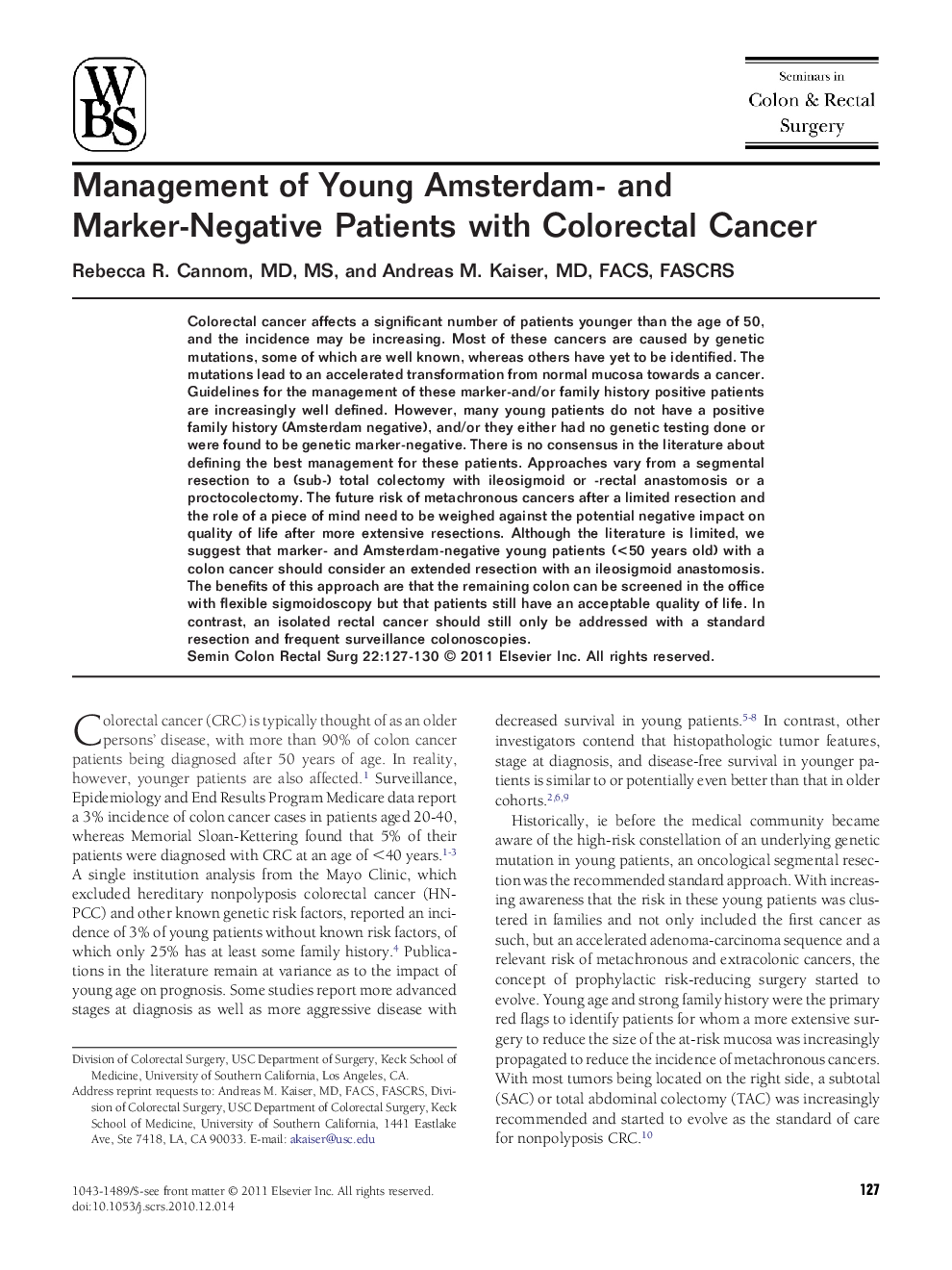| Article ID | Journal | Published Year | Pages | File Type |
|---|---|---|---|---|
| 3319489 | Seminars in Colon and Rectal Surgery | 2011 | 4 Pages |
Colorectal cancer affects a significant number of patients younger than the age of 50, and the incidence may be increasing. Most of these cancers are caused by genetic mutations, some of which are well known, whereas others have yet to be identified. The mutations lead to an accelerated transformation from normal mucosa towards a cancer. Guidelines for the management of these marker-and/or family history positive patients are increasingly well defined. However, many young patients do not have a positive family history (Amsterdam negative), and/or they either had no genetic testing done or were found to be genetic marker-negative. There is no consensus in the literature about defining the best management for these patients. Approaches vary from a segmental resection to a (sub-) total colectomy with ileosigmoid or -rectal anastomosis or a proctocolectomy. The future risk of metachronous cancers after a limited resection and the role of a piece of mind need to be weighed against the potential negative impact on quality of life after more extensive resections. Although the literature is limited, we suggest that marker- and Amsterdam-negative young patients (<50 years old) with a colon cancer should consider an extended resection with an ileosigmoid anastomosis. The benefits of this approach are that the remaining colon can be screened in the office with flexible sigmoidoscopy but that patients still have an acceptable quality of life. In contrast, an isolated rectal cancer should still only be addressed with a standard resection and frequent surveillance colonoscopies.
